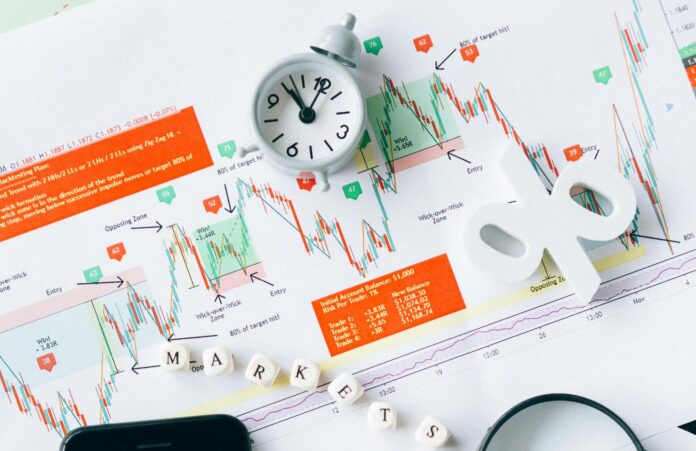A worldwide arena has long been controlled by participants from established financial centres in Europe, Asia and North America, and the foreign exchange (FX) market. But a change is underway: Africa is quickly establishing a reputation as a dynamic and attractive forex trading sector. The continent is seeing an interesting change in how individuals interact with global finance as internet availability grows, fast fintech adoption takes place and a population growing in financial literacy.
Once the territory of professional traders and institutional investors, what is now within reach of common people all throughout cities, towns and even rural areas in Africa? Along with enabling people to access fresh income sources, this democratization of forex trading is doubtlessly promoting more general financial inclusion and economic empowerment.
The Rise of Retail Forex Trading in Africa
Retail forex trading—where people trade currencies using internet platforms—has seen explosive expansion all throughout Africa recently. Supported by legal change and technical innovation, countries including Nigeria, South Africa, Kenya and Ghana have become hotspots for retail trading.
Long leading in the African trading scene is South Africa, whose well-regulated financial ecosystem is under the Financial Sector Conduct Authority (FSCA). Meanwhile, Nigeria is well-known for its young-driven digital economy and entrepreneurial energy, which provides an ideal habitat for online brokers and fintech startups. Thanks to developments like M-Pesa, Kenya, a mobile technology innovator, is also starting to see increasing activity in FX trading.
A young population, economic diversification and the attraction of forex as a side income or full-time self-employment driver are among the various elements fueling this explosion in interest. Forex trading also appeals to a middle class that is actively looking for strategies to create wealth and offset inflation and currency volatility.
Technology and Education: Driving Africa’s Forex Potential
The explosion of mobile connectivity has been a game-changer for the African forex market. Affordable smartphones, improved broadband access and fintech innovation have all contributed to lowering the entry barrier for traders.
- Mobile Trading Platforms: Brokers now offer mobile apps that allow users to trade anytime, anywhere. These apps come equipped with real-time data, interactive charts and automated trading features.
- Educational Resources: Online brokers and trading academies are offering free webinars, eBooks, demo accounts and tutorials to help users learn the ropes.
- Social and Copy Trading: These tools allow beginners to follow and replicate the trades of experienced traders, creating a hands-on learning environment.
- Payment Integration: Local payment systems like mobile money and local bank transfers have been integrated into trading platforms, making deposits and withdrawals faster and more accessible.
This blend of technology and education is producing a new generation of traders who are not only more informed but also more responsible in how they approach the markets.
Regulatory Developments and the Path to Safer Trading
African governments and financial institutions are acting to guarantee safe and sustainable participation as currency trading gains appeal. With strict licensing rules and consumer protection regulations, South Africa remains the most developed in this sense. Additionally aggressively seeking formalization and control of online trading platforms are Kenya’s Capital Markets Authority (CMA) and Nigeria’s Securities and Exchange Commission (SEC).
Regulation helps retail investors by filtering out dishonest brokers and building investor confidence. Proper supervision helps African traders enjoy a safe trading environment where their data and capital are safeguarded. Still, there are difficult issues. In certain nations, unclear laws allow unlicensed operators and frauds free reign. Long-term success depends thus on constant education, both at the user level and inside institutions.
Africa offers a special combination of advantages to the global FX system. Unlike saturated Western markets, many African countries give brokers a fresh, motivated audience ready to learn and engage. The young, digital-native population of the area appeals especially to long-term development.
Moreover, the macroeconomic situation all throughout the continent often calls for a financial strategy using currency trading. Forex becomes a useful instrument to protect and increase wealth in nations with unstable currencies or inflationary pressures. Forex trading is thus not only speculative; it is also becoming a strategic part of personal finance planning.
The integration of digital entrepreneurship and remote work is another big advantage. Forex trading—when done sensibly—can give both autonomy and scalability as more Africans look for flexible income sources.
Opportunities and Tips for Aspiring African Traders
For those new to forex trading or exploring its potential in Africa, a few best practices can go a long way in ensuring success:
- Start with Education: Understand the fundamentals of the forex market, including currency pairs, leverage, risk management and trading psychology.
- Use Regulated Brokers: Only trade with platforms licensed by credible authorities such as the FSCA, FCA, or CySEC to ensure your funds are secure.
- Practice First: Begin with a demo account to get a feel for the market without risking real money.
- Leverage Technology: Utilize mobile apps, automated tools and copy trading features wisely.
- Adopt a Long-Term Mindset: Trading is not a shortcut to riches—it requires patience, continuous learning and emotional discipline.
These practices are vital for building a strong trading foundation and avoiding common pitfalls.
Forex trading in Africa reflects a larger financial awakening throughout the continent, not a transient trend. Africa’s position in the world trading scene will only become more important as infrastructure keeps developing and more people have access to financial instruments.



